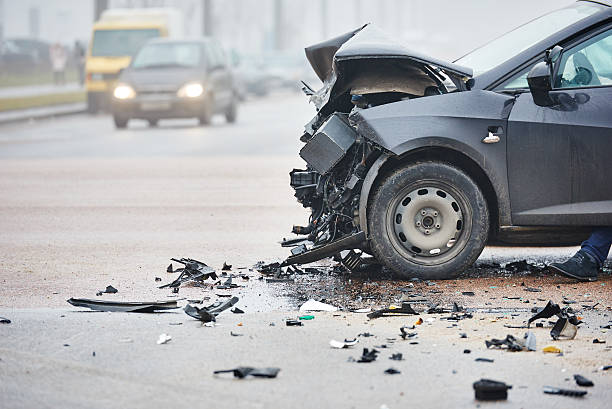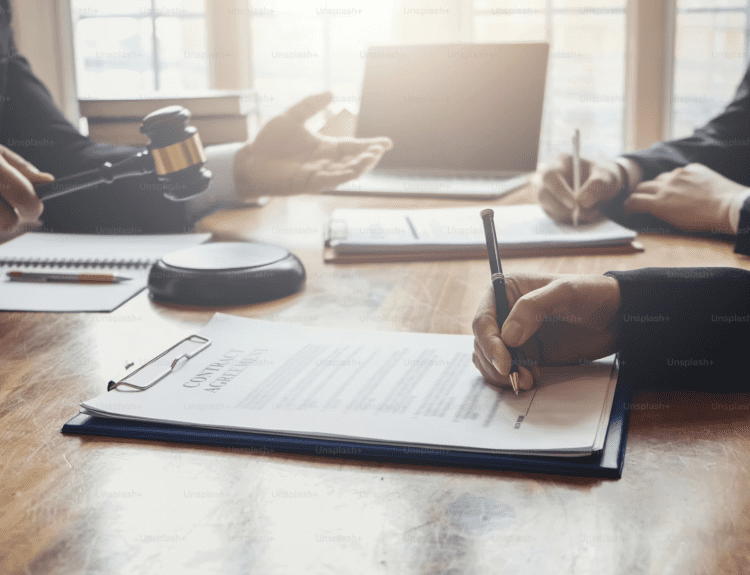A car accident can be an overwhelming experience, often leaving those involved feeling confused, scared, and unsure of what to do next. While it’s impossible to prepare fully for the emotional impact of an accident, knowing the steps to take immediately afterward can help protect your safety, preserve evidence, and ensure that your rights are upheld.
Contents
Prioritize Safety and Check for Injuries
The first and most important step after a car accident is ensuring the safety of everyone involved. If possible, move your vehicle to the side of the road to prevent further collisions. Turn on your hazard lights to alert other drivers to the accident. Check yourself and your passengers for injuries. Even if you feel fine initially, some injuries, such as whiplash or internal damage, may not become apparent until hours or days later. If anyone is injured, call 911 immediately to request medical assistance.
Call Law Enforcement
In many states, you are required by law to report car accidents involving injury, death, or significant property damage. Calling the police ensures that an official report is filed, which can be a critical piece of evidence if you need to pursue a personal injury claim later.
When the police arrive, provide them with accurate and detailed information about the accident, but avoid admitting fault or making speculative statements. Stick to the facts, and let the officers determine what happened.
Document the Scene
Gathering evidence at the scene of the accident is crucial for insurance claims and legal action. Use your smartphone to take photos and videos of:
- The damage to all vehicles involved.
- Any visible injuries.
- Skid marks, debris, or road conditions.
- Traffic signs, signals, or landmarks near the scene.
If there are witnesses, ask for their contact information and, if possible, record their statements about what they saw. Eyewitness accounts can be invaluable in establishing fault.
Exchange Information
Exchange contact and insurance information with the other driver. Be sure to collect:
- The driver’s full name and contact details.
- Their insurance company and policy number.
- The make, model, and license plate number of their vehicle.
While it’s important to be polite, avoid apologizing or admitting fault during this exchange, as these statements could be used against you later.
Seek Medical Attention
Even if you don’t feel injured immediately after the accident, see a doctor as soon as possible. Some injuries, such as concussions or soft tissue damage, may not manifest right away, but could have long-term effects if left untreated. Obtaining medical documentation of your injuries shortly after the accident can also strengthen your personal injury claim, should you decide to pursue one.
Notify Your Insurance Company
Contact your insurance provider to report the accident as soon as possible. Provide them with accurate details about the incident, and share any photos, videos, or witness information you’ve collected. Be honest when discussing the accident, but avoid providing unnecessary details or admitting fault. Your insurance company will investigate the claim and determine liability based on the evidence.
Consult an Experienced Car Accident Attorney
In the days following the accident, it’s wise to consult with a Chicago car accident lawyer, especially if:
- You sustained injuries.
- There is a dispute over who was at fault.
- The insurance company offers a low settlement or denies your claim.
An attorney can help you navigate the complexities of personal injury law, negotiate with insurance companies, and pursue compensation for medical bills, lost wages, and pain and suffering.
Avoid Discussing the Accident Publicly
It can be tempting to share details about the accident on social media or discuss it with friends and family. However, anything you say publicly could be used against you by the other party’s insurance company or legal team. Refrain from posting about the accident online, and direct any questions or concerns to your attorney.
Keep a Detailed Record of the Aftermath
Maintaining thorough documentation of everything related to the accident can strengthen your case. Keep a file that includes:
- Medical records and bills.
- Repair estimates or invoices for your vehicle.
- Receipts for out-of-pocket expenses related to the accident.
- Copies of the police report and insurance correspondence.
Additionally, consider keeping a journal to document how the accident has impacted your daily life, including physical pain, emotional distress, and any limitations on your activities.
Follow Through on Legal and Insurance Processes
The process of recovering compensation for a car accident can be time-consuming, but it’s important to remain patient and persistent. Work closely with your attorney to ensure all necessary paperwork is filed on time, and follow up regularly with your insurance provider.
If your case proceeds to court, your attorney will help you prepare and represent your interests. While most car accident claims are resolved through settlements, being prepared for litigation ensures that you’re ready for any outcome.
Knowing what to do immediately after a car accident can make a difference in protecting your health, rights, and financial well-being. From prioritizing safety and gathering evidence to consulting an experienced Las Vegas car accident lawyer, taking the right steps can help you navigate the aftermath with confidence.




